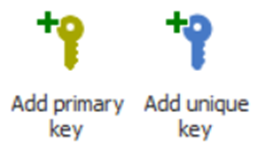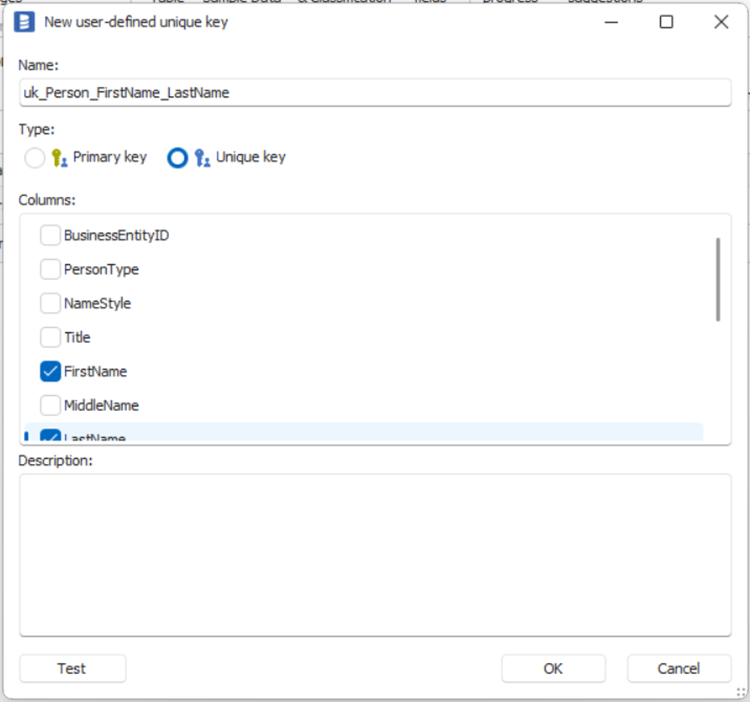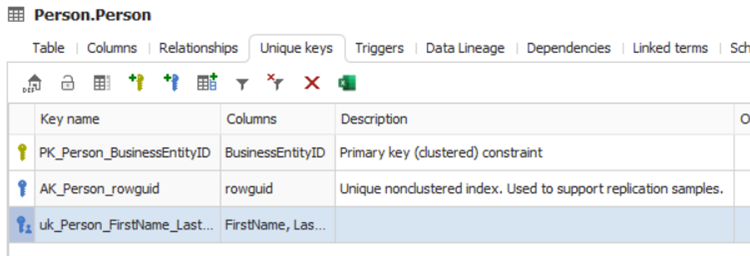Primary and unique keys
Dataedo imports table primary and unique keys. Those unique keys might be unique indexes or unique constraints in case of Oracle. They are presented in one table in Unique keys tab.
To describe unique keys edit text in description field.

Missing logical keys
Sometimes, a logically existing primary or unique is not physically coded in database. Similar logical constraints may also exist on views. Dataedo allows you to add them both to your tables and views by using user-defined keys.
Adding user-defined primary or unique keys
Note: User-defined unique keys and relations exist only in Dataedo repository and are not populated back to database schema.
To add user-defined primary or unique key for your table/view go to Unique keys tab and click Add primary key or Add unique key button on the ribbon or from context menu under right click.

or

This will open a key form:
- Name - name of the key. It is optional, a default name will be set after saving
- Type - you must choose a type of a key - primary or unique
- Columns - you must choose from a dropdown one or more column that will be part of your key
- Description - you may provide description of your key. This is the same field as in the table of keys

Once you provided all the fields click OK to add a key. New key will be added to the table of keys. Note that user-defined keys have icons with a blue man (
 ).
).

Editing user-defined primary or unique keys
To edit key, select it in the table and click Edit key button on the ribbon or from context menu under right click.


The same form will open, and you will be able to provide changes.










